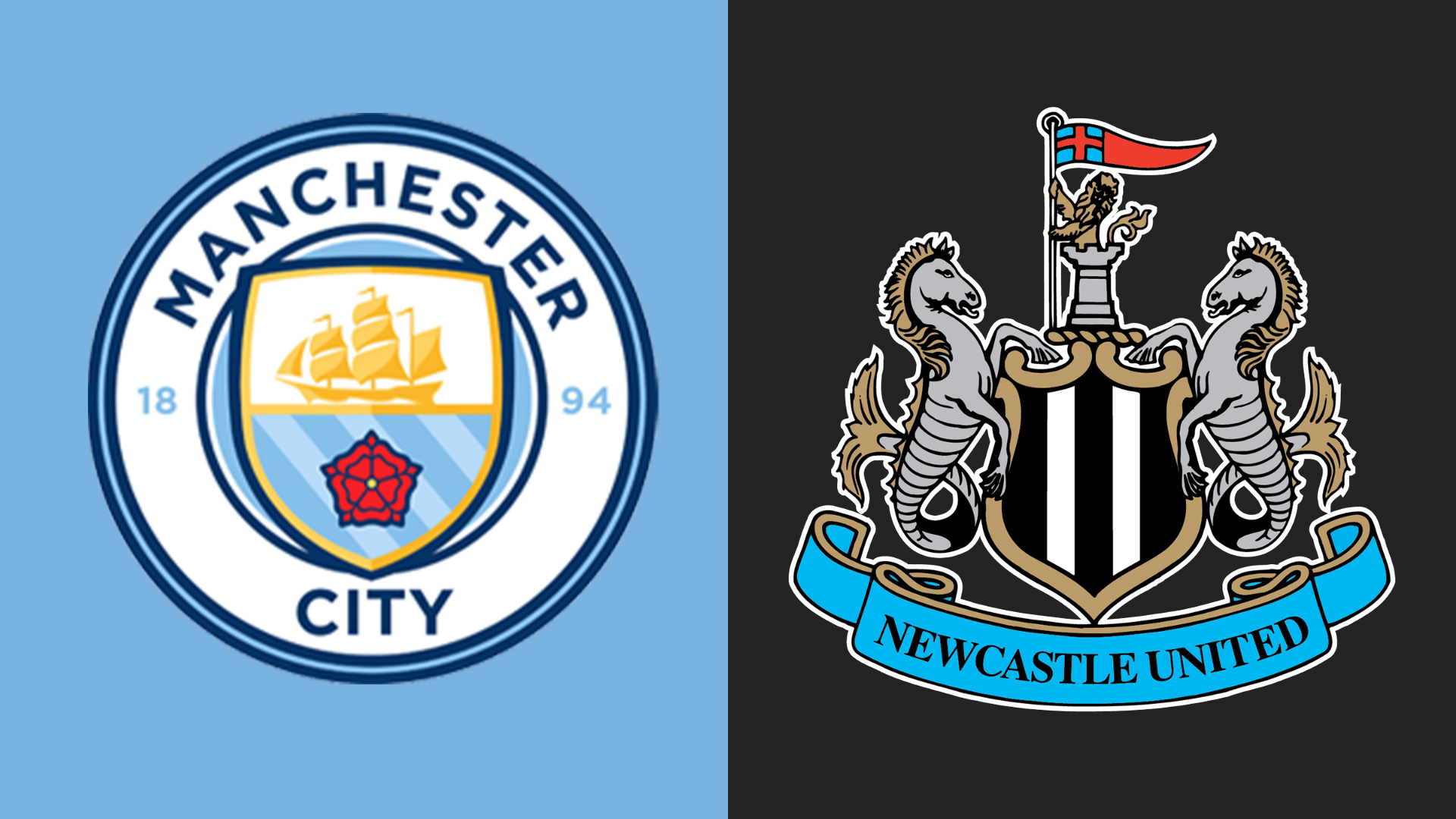Manchester City Have To Pay £80m For Newcastle United Player: Should They Pay It?

The summer transfer window has brought with it a familiar narrative of astronomical fees and ambitious pursuits, but few stories have captured the attention of football enthusiasts quite like Manchester City’s reported interest in Newcastle United’s Tino Livramento. The £80 million valuation placed on the 22-year-old English full-back has sparked intense debate across the footballing world, raising fundamental questions about modern transfer economics, player valuation, and strategic squad building.
The Livramento Phenomenon
Tino Livramento’s journey to prominence reads like a modern football fairy tale. Emerging from Chelsea’s renowned youth academy, the young defender has transformed from a promising prospect into one of the Premier League’s most sought-after talents. His progression at Newcastle United has been nothing short of remarkable, showcasing the kind of development that catches the eye of Europe’s elite clubs.
The 22-year-old has established himself as a versatile and dynamic full-back capable of operating on either flank with equal proficiency. His technical abilities, combined with his pace and tactical intelligence, have made him an integral part of Newcastle’s tactical setup under Eddie Howe. The defender’s ability to contribute both defensively and offensively has become increasingly valuable in modern football, where full-backs are expected to be complete players rather than specialists in one particular aspect of the game.
What makes Livramento particularly attractive to clubs like Manchester City is his adaptability and potential for further development. At just 22, he represents the perfect blend of immediate impact and long-term investment. His performances have demonstrated consistency and maturity beyond his years, suggesting that he possesses the mental fortitude required to perform at the highest level consistently.
Manchester City’s Strategic Perspective
From Manchester City’s standpoint, the interest in Livramento aligns perfectly with Pep Guardiola’s tactical philosophy and long-term vision for the club. The Spanish manager has consistently emphasized the importance of full-backs in his system, viewing them as crucial components in both defensive solidity and attacking fluidity. The success of players like Joao Cancelo and Kyle Walker in previous seasons has demonstrated how transformative the right full-back can be in Guardiola’s tactical framework.
Livramento’s profile fits seamlessly into the City template. His pace allows him to recover defensively when the team is caught out of position, while his technical ability enables him to contribute meaningfully to the team’s possession-based approach. The young defender’s crossing ability and understanding of when to overlap or underlap would provide Guardiola with additional tactical flexibility, particularly in matches where breaking down compact defenses becomes crucial.
The Citizens’ recent tactical evolution has placed even greater emphasis on the full-back position. The departure of some experienced players and the need to refresh the squad has created opportunities for new signings to make immediate impacts. Livramento’s age profile also aligns with City’s broader strategy of investing in young talent who can contribute immediately while developing further under world-class coaching.
However, the £80 million price tag introduces a complex dynamic to this potential transfer. For context, this valuation would place Livramento among the most expensive defenders in football history, a category traditionally reserved for proven international stars or players with extensive Champions League experience. The question becomes whether his potential justifies such an investment, particularly when considering the alternative options available in the market.
The Economics of Modern Football
The £80 million valuation of Livramento must be understood within the broader context of modern football economics. Transfer fees have reached unprecedented levels in recent years, driven by factors including increased television revenues, commercial growth, and the competitive pressure among elite clubs to secure the best talent. What once seemed like astronomical figures have become increasingly normalized in the current market environment.
Newcastle United’s position in setting this valuation reflects several strategic considerations. Firstly, the club is under no financial pressure to sell, having been transformed by significant investment and improved commercial performance. The Magpies have established themselves as genuine competitors in the Premier League, and retaining key players like Livramento is crucial to their continued progress.
Secondly, Newcastle’s valuation takes into account the replacement cost and the potential disruption that losing Livramento would cause to their tactical setup. Finding a player of similar quality and potential in the current market would likely require a substantial investment, and there’s no guarantee that such a replacement would integrate as seamlessly into the team’s structure.
The inflated valuation also serves as a deterrent to potential suitors. By setting the price at £80 million, Newcastle sends a clear message that they view Livramento as integral to their project and that any club wishing to acquire his services must be prepared to make a significant financial commitment.
Technical Analysis and Tactical Fit
From a purely technical perspective, Livramento possesses many of the attributes that make modern full-backs invaluable. His pace allows him to recover defensively when caught out of position, while his crossing ability provides an additional attacking dimension. The young defender’s reading of the game has impressed observers, with his positioning and decision-making showing maturity beyond his years.
In Manchester City’s system, Livramento would be expected to contribute significantly to the team’s attacking play. His ability to maintain width while providing accurate crosses would give Guardiola another tactical option, particularly in matches where the team struggles to break down compact defenses. The defender’s versatility in being able to operate on either flank would provide additional squad depth and tactical flexibility.
Defensively, Livramento has shown the ability to handle one-on-one situations effectively, using his pace and positioning to neutralize opposing wingers. His aerial ability, while not his strongest attribute, has shown improvement and would benefit from working with City’s coaching staff and more experienced defenders.
The young defender’s passing range and ability to maintain possession under pressure would fit seamlessly into City’s possession-based approach. His comfort in receiving the ball in tight spaces and ability to find teammates in advanced positions would enhance the team’s build-up play from deep areas.
Market Alternatives and Strategic Considerations
While Livramento represents an attractive option, the £80 million valuation necessitates consideration of alternative targets in the market. The current transfer landscape offers several established full-backs who might provide similar contributions at potentially lower costs. Players with extensive Champions League experience and proven track records at international level could be available for comparable fees.
The strategic question becomes whether Manchester City should prioritize potential over proven quality. Livramento’s age suggests that he could provide service for many years, potentially making the investment more cost-effective in the long term. However, the immediate pressure to compete at the highest level might favor more experienced options who can contribute immediately without requiring additional development time.
Manchester City’s recent transfer activity has shown a willingness to invest in young talent, but the club has also demonstrated pragmatism in their approach to squad building. The successful integration of players like Erling Haaland and the continued development of academy products suggests that the club’s recruitment strategy balances immediate needs with long-term planning.
The Newcastle United Perspective
From Newcastle United’s standpoint, the £80 million valuation represents both a statement of intent and a practical consideration. The club’s recent investment and improved performance have created a situation where they can afford to be selective about player departures. Retaining key players like Livramento is crucial to maintaining their competitive trajectory and establishing themselves as a consistent top-half Premier League side.
The potential sale of Livramento would undoubtedly provide Newcastle with significant resources to strengthen other areas of the squad. However, the disruption caused by losing such a key player might outweigh the financial benefits, particularly if suitable replacements prove difficult to identify or integrate successfully.
Newcastle’s position also reflects the changing dynamics of Premier League economics. The club’s ability to reject substantial offers and retain key players demonstrates their transformation from a selling club to one that can compete financially with established powers. This shift has broader implications for the transfer market and the strategies employed by clubs seeking to acquire top talent.
Risk Assessment and Financial Implications
The £80 million investment in Livramento would represent a significant financial commitment for Manchester City, despite their substantial resources. The risk factors associated with such an investment include the possibility of injury, adaptation challenges, and the potential for the player’s development to plateau rather than continue its upward trajectory.
The financial implications extend beyond the initial transfer fee. Livramento’s wages, agent fees, and associated costs would add substantially to the overall investment. The club would also need to consider the opportunity cost of this investment, as the resources committed to acquiring Livramento could potentially be used to address other squad needs or pursue alternative targets.
From a financial fair play perspective, Manchester City has demonstrated their ability to operate within regulatory constraints while making significant investments. However, the cumulative effect of major signings requires careful planning and consideration of revenue streams and potential player sales.
Long-term Strategic Vision
Manchester City’s interest in Livramento must be evaluated within the context of their long-term strategic vision. The club’s commitment to developing young talent and maintaining competitiveness across multiple competitions requires a careful balance between immediate needs and future planning.
The potential acquisition of Livramento could be viewed as an investment in the club’s future, providing a foundation for sustained success over the next decade. The defender’s age profile suggests that he could become a cornerstone of the team’s defensive structure, potentially captaining the side in future years.
However, the immediate pressure to compete in the Premier League and Champions League cannot be ignored. The club’s supporters and stakeholders expect continued success, and any major investment must be justified by its contribution to achieving these objectives.
Conclusion: The Verdict on Value
The question of whether Manchester City should pay £80 million for Tino Livramento ultimately depends on their assessment of risk, reward, and strategic priorities. While the young defender possesses undeniable talent and potential, the valuation appears excessive given his current experience level and the alternative options available in the market.
The sensible approach would be to continue monitoring Livramento’s development while exploring other options that might provide better value for money. The current transfer market offers several experienced full-backs who could contribute immediately at potentially lower costs, allowing City to address other squad needs with the remaining resources.
If Newcastle United were to reduce their valuation or if Livramento’s performances continue to justify the investment, the situation might change. However, based on current circumstances, the £80 million price tag appears to represent poor value for money, regardless of the player’s undoubted potential.
Manchester City’s success has been built on smart recruitment and tactical innovation rather than simply outspending competitors. Maintaining this approach, even when faced with tempting but overpriced targets, will be crucial to their continued success in an increasingly competitive football landscape.
The Livramento saga serves as a reminder of the complex considerations involved in modern transfer negotiations. While talent identification remains crucial, the ability to assess value and make strategic decisions based on comprehensive analysis rather than emotional appeal will ultimately determine success in the transfer market.
For now, Manchester City would be wise to continue their pursuit of alternative targets while keeping the door open for future negotiations with Newcastle United. The football transfer market is dynamic, and circumstances can change rapidly, potentially creating opportunities for mutually beneficial agreements in the future.















